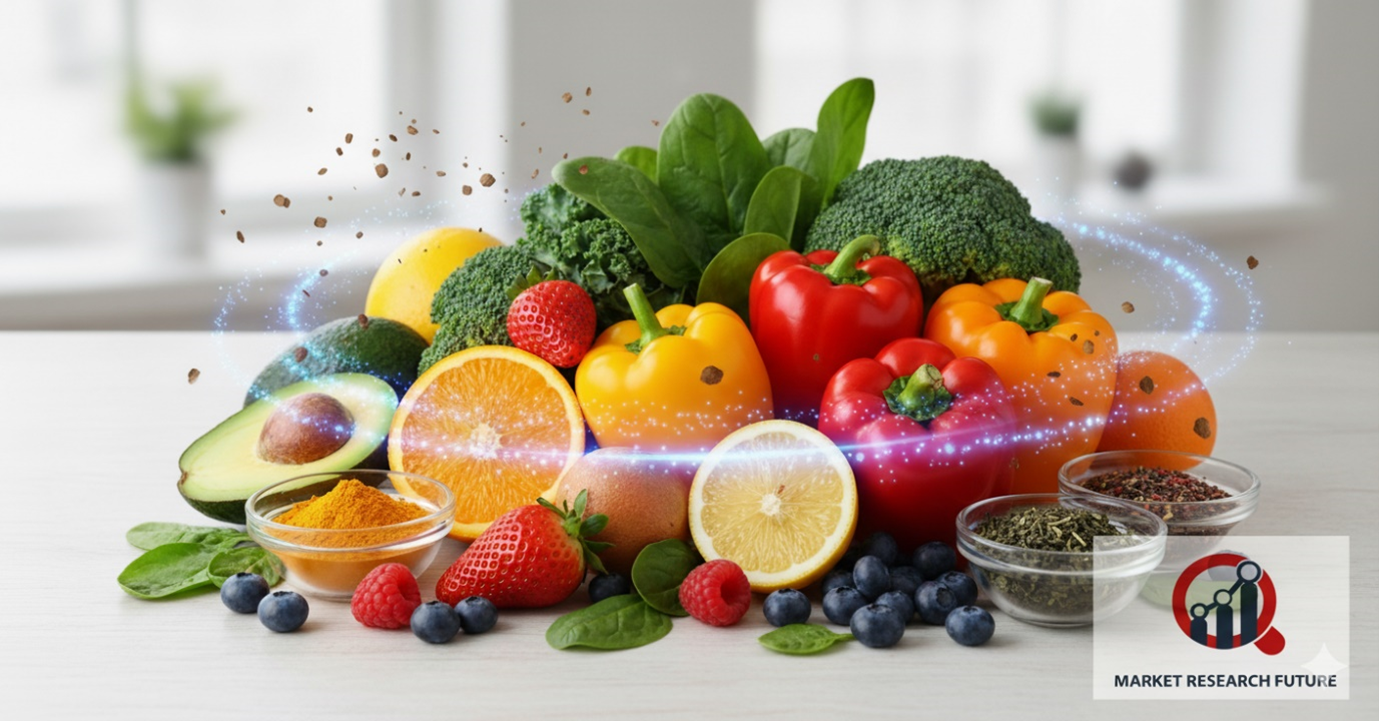Antioxidants - Crisis Shapes the Market

Antioxidants Outlook
In the health, fitness, and wellness world, "antioxidant" is a hot topic. People often think of antioxidants as things that slow down aging, boost the immune system, or fight diseases. But what are they, and why are they so important? In this blog, we'll talk about the science behind antioxidants, how they relate to nutrition and supplements, and how they affect both our health and the wellness market.
What does an antioxidant do?
An antioxidant is a substance that helps the body fight oxidation. When we eat foods high in energy, like sugars and fats, they react with oxygen. This process makes free radicals, which are unstable molecules that hurt cells and make you age faster. Free radicals can make it harder for our cells to make energy, which makes us more likely to get tired, sick, or old over time.
Antioxidants protect the body from this chain reaction. They protect cells and keep the body's natural energy systems in balance by neutralizing free radicals.
What do antioxidants and nutritional supplements have in common?
There are a lot of antioxidants in nature. Vitamin C, vitamin E, and beta-carotene are some of the natural antioxidants that fruits, vegetables, nuts, and whole grains have. For example, vitamin C is found in citrus fruits, and vitamin E is found in nuts and seeds.
But in today's fast-paced world, relying only on food sources may not always give you enough. This is where supplements come in. They give the body concentrated doses of antioxidants that help it fight off disease. Some well-known antioxidants are:
Vitamin C (ascorbic acid) is an antioxidant that dissolves in water and is found in fruits and vegetables. It helps protect cells from oxidative stress.
Vitamin E (tocopherol) is a fat-soluble antioxidant that helps cell membranes and controls the activity of other antioxidants inside the body.
Glutathione is a powerful antioxidant made in the liver that is found in almost every cell in the body. It is very important for detoxification and immune defense.
These antioxidants work together to protect against oxidative damage and boost overall health.
What Are the Benefits of Taking Antioxidants?
The best thing about antioxidants is that they can stop free radicals from hurting cells before they can do any damage. Antioxidants help keep the body in balance because oxidative stress can damage healthy tissues.
They keep cells from aging too quickly.
They help the immune system by lowering oxidative stress on white blood cells.
They help your skin, energy levels, and organs work better.
Antioxidants stabilize electrons from a biological point of view. Because they don't have electrons, free radicals are very reactive and steal electrons from other molecules. Antioxidants stop the cycle of destruction by giving or stabilizing these electrons.
Flavonoids: The Hero No One Knows
Flavonoids are some of the best polyphenolic antioxidants. They are found naturally in foods like berries, tea, cocoa, and colorful vegetables, and they are known for their ability to protect cells from oxidative stress. Flavonoids are different from other nutrients because they work at the cellular level to fight free radicals and lower inflammation. They not only protect against oxidative damage, but they also support heart health, boost immunity, and promote overall health. They are a true gift from nature's pantry.

Leave a Comment